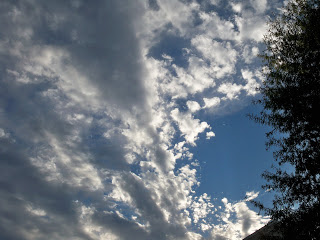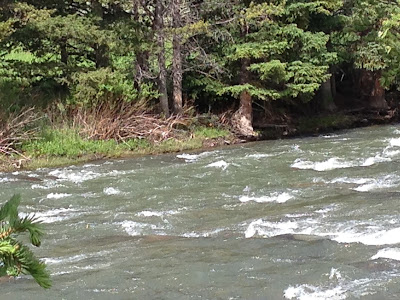The Rose of Sharon is blooming now beside the driveway. The dark green plant is covered with plump, white, rose-like blooms. But it’s not my Rose of Sharon I want to write about — but a row of these plants that line a yard a block away from here.
I know the history of these small trees, know why they bloom where they do. The corner house is the home of “the faithful jogger.” Don’t know his real name, only that my children used to call him that years ago because every day, at least once a day and regardless of weather, he could be seen running up and down Folkstone Drive. He never seemed very happy, had a plodding gait — I always imagined he had taken up the practice for his health. All of which is beside the point except to illustrate the man’s persistence. He doesn’t give up easily.
And he didn’t give up when three years in a row bad wind or ice storms took down his split rail fence. Twice he built it up again. In fact, he was always one of the first people out clearing debris. Then a few days later, more fencing would appear.
This last time was different. Instead of planks he planted rows of spindly Rose of Sharon trees, the smallest, slightest stock, barely more than sticks in the ground. There were many of them, though, and I could see his plan — to create a green and living border, to make a fence that would bend but not break.
It’s been years now since those trees went into the ground, and years since he last jogged down our suburban lane. But those once-spindly trees are filling out into a proper, flowery border. They have matured to beauty and to fullness. And when I saw them the other day, I saw not just what they are but what they were, what they have become.
This is what happens when you walk a place; when you know not just its stories but its back stories as well.


